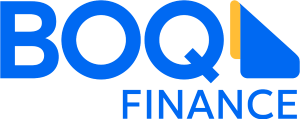
Things To Consider When Purchasing Used Equipment
With the increasing shortage of new vehicles and equipment, the second hand market for many items is booming and has inflated by 20-30% over the past year. This boom is being compounded by high commodity prices and long wait times for new equipment deliveries.
With this in mind, buyers should prepare for their second hand purchases with a thorough checklist, effective due diligence process and the best equipment financing options. We discuss these three important steps below.
1. Your second hand asset checklist
Finding the right used machinery with satisfactory working conditions can be a difficult task - particularly if the buyer isn’t familiar with conducting inspections.
The process can be simplified by having a comprehensive checklist, before starting your second hand equipment search. Here are some important points you should consider including in your checklist:
- Start the equipment inspection with a vendor-supplied copy of the condition report, interstate registration transfer and insurance.
- Ask how the machine was used, where and in what type of working environment.
- Conduct a check of the equipment including the tyres, lower body, buckets and blades.
- Identify any components that appear worn out, or close to being worn out.
- Conduct an interior cabin check of the controls, steering and backup systems. Also check if the seat adjustments work.
- Check the hours on the meter for an accurate gauge of how much usage the equipment has had.
- Turn the machine on and listen for warning signs such as coughing, squeaking or any other unusual noises.
- Pull the machinery forward a few metres to check it tracks straight.
- Check the hydraulic system and engine for signs of fluid leaks, breaks, corrosion, scratches or dents. Also check for loose belts and dirty filters.
- Get an oil sample and check for metal contamination through an oil analysis.
These tips can be used to conduct a basic inspection on any used equipment you buy, however it is best to have a qualified technician perform the inspection on your behalf if possible.
2. Due diligence is key
The next thing to consider is your due diligence process, which extends beyond the inspection. In the right market, purchasing used equipment can offer great value, but it’s important to remember that the risk of problems with buying second hand equipment is significantly higher than buying new.
Here are a few key questions to be addressed through the due diligence process:
- How long is the equipment likely to last? It’s important to match the product lifespan with your requirements.
- Is the equipment an exact match for your needs? Second hand equipment buying typically involves less choice than buying new, so ensuring it’s a genuine match is worthwhile.
- Is the seller reputable? Dealing with sellers with solid reputations is likely to increase your chances of buying quality second hand products.
- Are there any additional removal and shipping charges? This is worth checking, particularly for heavy machinery.
When conducting private sales, a little diligence can go a long way. There will always be some risk involved with purchasing second hand, and these risks grow with the list of former owners. However, being aware of these risks is paramount to effective planning and mitigation.
3. The benefits of equipment financing
And finally, being prepared with a finance solution is also an important step. Many of us associate private sales as a lump sum which must be paid at time of purchase, however this doesn’t have to be the case.
Business owners have a number of equipment finance options available which allow them to pay off second hand assets over time, as opposed to full payment at the time of purchase:
- Finance lease - involves the lender purchasing an asset and leasing it back to you. At the end of the lease period, you’ll have the option to purchase the asset. The payments can also be tax deductible.
- Commercial hire-purchase - a financing option wherein you pay the total amount of the asset in instalments over a specified period. Ownership is transferred to you after the final instalment of the asset has been made. While only the interest portion of the payments is tax deductible, your business can claim depreciation deductions.
- Specific security agreement (formerly a chattel mortgage) - is similar to a home loan, wherein the equipment being financed is owned by you/your business, but is mortgaged to the lender by a registrable charge over the equipment. This is a secured loan where the equipment acts as security for the lender.
These are just some of the finance options available, but finding a suitable finance option doesn’t have to be complicated. A broker can help simplify the process and find you the best finance option and lender, depending on the equipment you are buying and what it's being used for.
Buying pre-owned equipment in today’s market can be a stressful and difficult process. At BOQ Finance we have a team of Equipment Finance experts that can help you with finance solutions tailored to your business needs.
Contact us today to find out more, email boqefcustomerservice@boqfinance.com.au
Finance provided by BOQ Equipment Finance Limited ABN 78 008 492 582 (BOQEF). BOQEF is a wholly owned subsidiary of Bank of Queensland Limited ABN 32 009 656 740 (BOQ). BOQ does not guarantee or otherwise support the obligations or performance of BOQEF or the products it offers. This blog post is for general information purposes only and is not intended as financial, taxation or professional advice. It has not been prepared with reference to the financial circumstances of any particular person or business and should not be relied on as such. You should seek your own independent financial, legal and taxation advice before making any decision about any action in relation to the material in this article.

